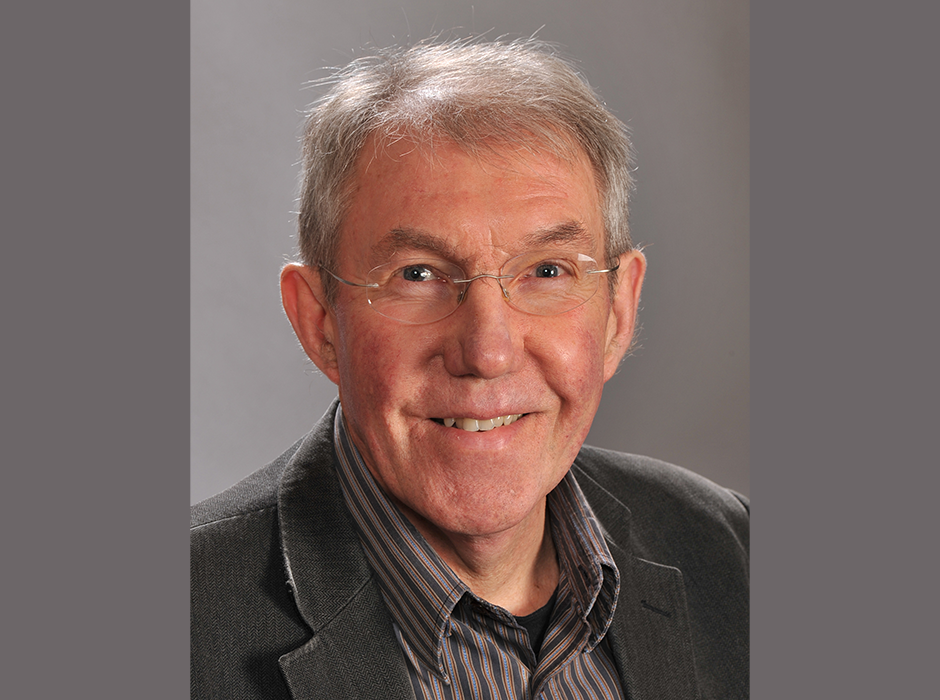
While Emeritus Professor Tatley is looking forward to having more free time post-retirement, he will still continue his work as consulting expert at the World Health Organization.
Professor Michael Tatley has a lot to celebrate in his 24-year career as a pharmacovigilance expert.
He retires in early January as an Emeritus Professor, having contributed to medicine safety research, policy, and programmes nationally and internationally.
Professor Tatley says he is humbled to be nominated for the Emeritus title.
“It is a great honour and humbling to know that my contribution is considered worthwhile,“ he says.
A public health physician and the then Director of Health Services for Cape Town, Professor Tatley moved to New Zealand from South Africa in 2000. He joined Otago as a Medical Assessor for the Centre for Adverse Reactions Monitoring (CARM).
In 2003, he was appointed as the first Director of the newly formed New Zealand Pharmacovigilance Centre (NZPhvC) which housed CARM and the longstanding Intensive Medicines Monitoring Program.
As Director, he helped establish the Intensive Vaccine Monitoring Program (IVMP) in 2003, which monitored the real-time safety of the unique-for-New Zealand MeNZB meningococcal B vaccine.
He describes the IVMP as “novel for its time”, leveraging the GP clinics and Primary Health Organisations (PHOs) move from paper to electronic Practice Management Systems (PMS).
“The system we built harvested the data we wanted directly from the PMS, reducing the need for additional reporting or questionnaires, and allowing us to do near real-time monitoring, automated analysis and report generation of adverse events related to the vaccine rollout.”
The data extraction utility was a success Professor Tatley says, leading PMS vendors to introduce a module that allowed GPs and clinicians to turn relevant patient consultation encounters into reports with a click of a button that were then sent directly to the CARM database.
The agility and adaptability of the NZPhvC software also received international interest, Professor Tatley says.
“We were approached by the China Family Planning Service Contraceptive Adverse Reaction Monitoring Programme with a request to introduce a version of our data extraction and analysis software for their systems. This led to an academic exchange and collaboration that lasted several years.”
Professor Tatley actively worked at expanding the scope of the NZPhvC, utilising their monitoring infrastructure and surveillance expertise to launch a Medication Error Reporting Programme, a Recreational Substance Adverse Event Monitoring Programme, and a Vaping Adverse Event Monitoring Programme.
The team at NZPhvC were also involved in COVID vaccine monitoring; collecting and assessing a subset of the adverse events following immunisation reported to CARM.
Professor Tatley and his CARM team’s experience from the meningococcal B vaccine rollout and their extensive expertise in vaccine safety monitoring informed elements of New Zealand's COVID-19 vaccine safety surveillance strategy and the COVID Vaccine Immunisation Program monitoring system established by the Ministry of Health.
“COVID vaccine monitoring was run in parallel to our other programmes, and its volume of reports far exceeded that of all our programmes combined.
“Our monitoring contributed to identifying severe cases of myocarditis as a possible rare side effect of the COVID vaccine.”
Under Professor Tatley’s leadership, the monitoring and surveillance activities of the NZPhvC programs provided a key source of data used to inform not only regulatory actions and advisories but also research and teaching.
“Over the years, the CARM database has provided data for research translating into presentations, publications, undergraduate and postgraduate research projects and successful local and national collaborative research grants,” Professor Tatley says.
In addition to his research interest in medicine and vaccine safety, Professor Tatley has contributed his expertise as a member of several national scientific advisory committees, medicine safety and policy committees and the PHARMAC Immunisation Subcommittee.
Internationally, he has been actively engaged in facilitating support systems to transfer and share pharmacovigilance knowledge, skills development, and practice optimisation for countries in the Indo-Pacific region. He has also served the World Health Organization as a consultant and pharmacovigilance expert technical advisor for the Geneva headquarters and the Western Pacific Regional Office in Manila.
This is the work he hopes to continue post-retirement.
“I am really interested in helping strengthen emerging health systems in smaller and lower-income countries, particularly around drug and vaccine safety monitoring.”
Outside of his scientific endeavours, he is looking forward to having the time to relax, saying his life has been “pretty full-on, with all sorts of programmes, committees, and groups”.
“I have family overseas I’d like to visit and perhaps do some travelling.”
Ever the scientist and a concerned global citizen, he says he’ll have to be mindful about travelling from a climate impact perspective too.
“Perhaps I’ll work out a happy balance between the two!”
~ Kōrero by Sandra French, Adviser, Internal Communications